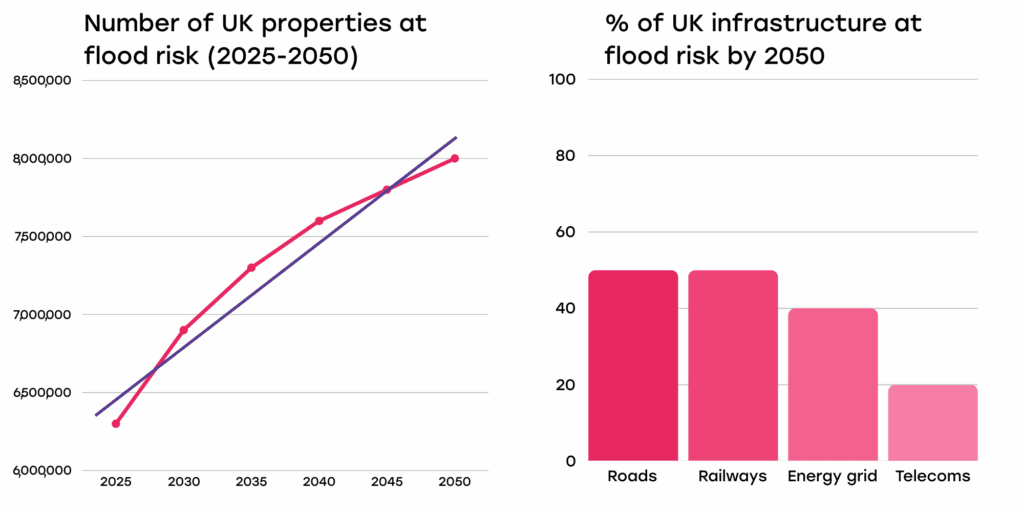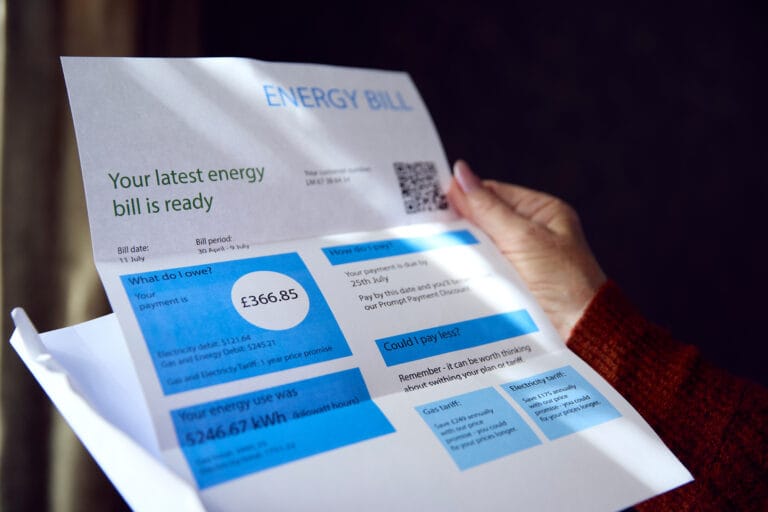A Nation at Risk
As the climate crisis accelerates, the UK faces an era of climate disasters—from flash floods to heatwaves and power outages. A recent study has revealed a sobering truth: the UK is not prepared for the scale or severity of climate-related disasters already beginning to unfold. Without urgent action, the consequences will only worsen.
For businesses and communities alike, the cost of inaction when it comes to climate disasters could be severe. In this blog, we will explore the risks and causes of our lack of preparation, as well as how smart efficiency and resilience strategies can help mitigate future damage.
Infrastructure Strained by Climate Disasters
The CCC’s report revealed that much of the UK’s existing infrastructure—including transport, energy, and water systems—is ill-equipped to handle the increasing pressure of climate disasters. Ageing assets, reactive maintenance strategies, and a lack of long-term investment all contribute to rising vulnerability.
“Without significant adaptation, many systems will fail under pressure from future climate events,” the study warned. The result? More frequent service disruptions, escalating costs, and a knock-on effect on businesses and local economies.
Urgent Need for Government Action
The study highlights that government action has stagnated, with no significant progress on adaptation planning. Risks of climate disasters are growing rapidly, with around half of England’s highest quality agricultural land already at risk of flooding. By 2050, this will increase further, impacting food production.
The number of properties at flood risk is projected to grow from 6.3 million to 8 million—one in four homes in England. Infrastructure is also under strain, with one-third of roads and railways facing flood risk, likely rising to half by 2050.

Building Resilience Through Efficiency
The UK is at a crossroads. The climate disaster crisis is no longer a distant threat but a present reality. While government action is crucial, businesses and communities can take proactive steps to build resilience.














